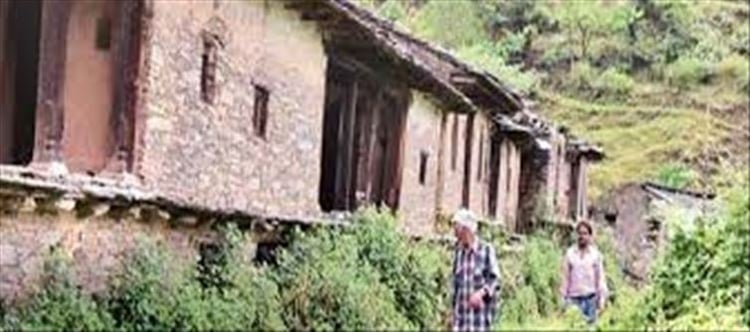
Women from Kimkidi village in Chaupattagal taluka of Bellary, uttarakhand, are harvesting sorghum and other pulses in their fields.
.jpg)
The continuous heavy rains on october 17, 18, and 19 have affected the pulses waiting to be harvested due to waterlogging in the fields.
"It is not raining when it is needed. It is raining incessantly now. The lentils are rotten. Other lentils are also rotten. The grass cut for animal feed is rotten.
The monsoon rains continued even at the time of sowing in May. This had an impact on the plants. Now the rains have done the same during the harvest.
.jpg)
The impact of climate change
Due to the impact of climate change in the state of uttarakhand, people are leaving agriculture and migrating to the plains for work.
The uttarakhand Rural Development and Migration Commission (URDC) has said in its report that climate change is the main reason for the depletion and displacement of agricultural lands in the state. 66% of the population of uttarakhand lives in rural areas.
The last family to live in Bharatpur village of Majgaon village council of Chaupattagal taluka proved these reports to be true. Most of the houses in the village are in ruins. Some houses were locked. Some doors were broken. Inside them, the bushes kneel.
.jpg)
The fields in the village are hidden in the bushes. When the general strike took effect last year, the daughter-in-law returned here with her children. Sometimes people come for two days for marriage or puja. Many have left the village in vain.
This village will also be empty
The unseasonal rains are causing great damage to agriculture. Most of the rural families have now migrated to the cities. In two or three more years, our village will be devastated. Some families will leave for their children's education.
Once upon a time, the farms were full of garlic, onions, and chillies, and it was difficult to sell them. The water in the water sources is very low so it is difficult to irrigate the fields.

Agriculture and climate change
We are now clearly aware of the impact of climate change on agriculture. It has been said before that if there is global warming, the growing crops will shift to higher ground.
The weather shows us that with the increase in temperature, the rainfall and snowfall patterns have also changed.
It rained heavily in the summer in May this year, but it is unlikely that it will rain again next year. The changes in the weather are very unpredictable, so farmers do not know when to sow the seeds.
The bears have been in hibernation for 4-5 months before. But their dormancy is declining due to low snowfall. In the Tras and Zanskar Valley of Ladakh, we found that bears do not go to sleep even for a month.
Human-wildlife conflicts are increasing in the mountains due to migration, the barrenness of fields, lack of people to maintain the fields.
Once upon a time, there were wild fruits here including Hisar, Kimkora, Semal but the awning-rainy season has changed. Maybe that's why nobody canbe seen now.




 click and follow Indiaherald WhatsApp channel
click and follow Indiaherald WhatsApp channel